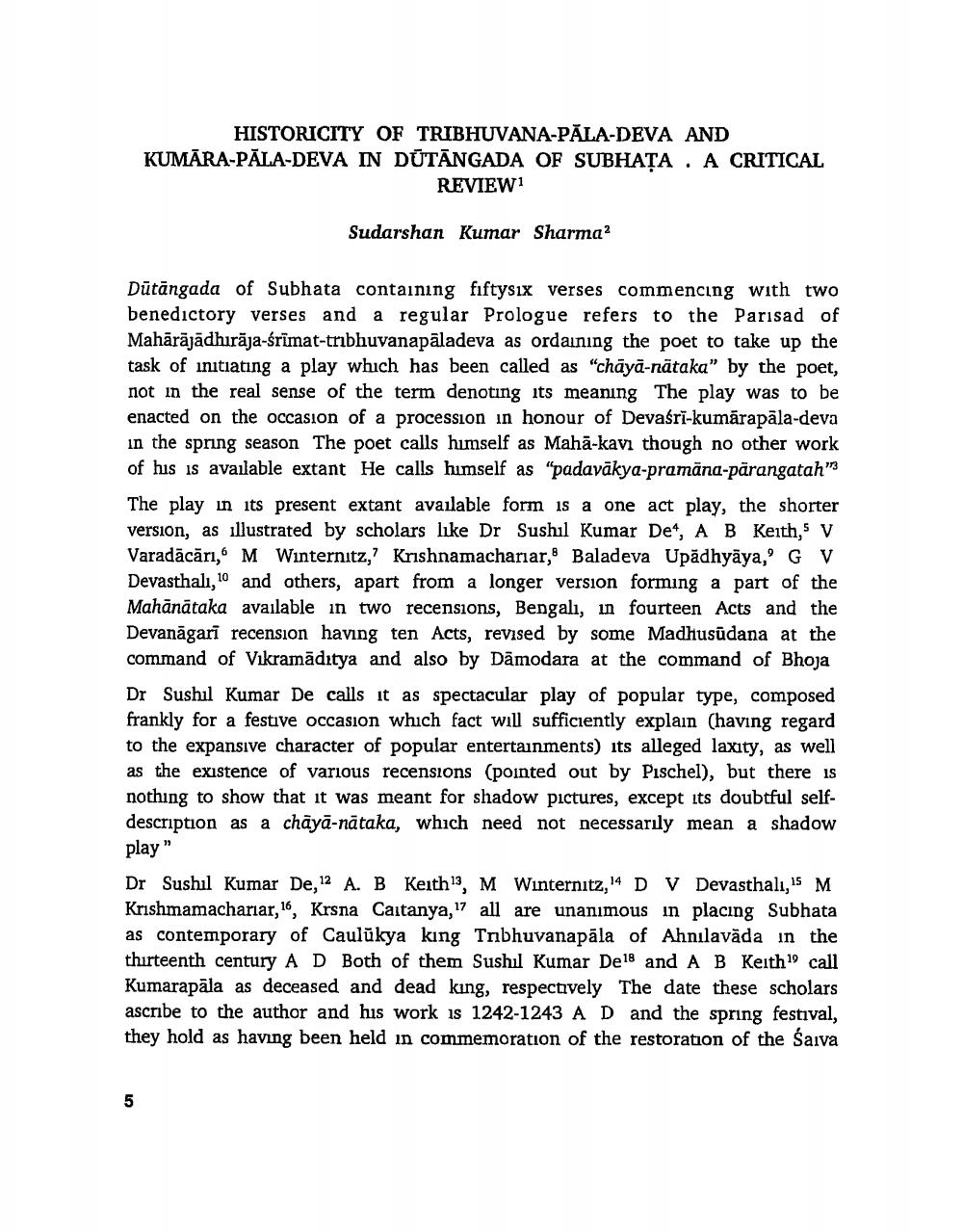________________
HISTORICITY OF TRIBHUVANA-PĂLA-DEVA AND KUMĀRA-PĀLA-DEVA IN DŪTĀNGADA OF SUBHAȚA . A CRITICAL
REVIEW:
Sudarshan Kumar Sharma?
Dūtāngada of Subhata containing fiftysix verses commencing with two benedictory verses and a regular Prologue refers to the Parisad of Mahārājādhırāja-śrīmat-tribhuvanapāladeva as ordaining the poet to take up the task of initiating a play which has been called as "chāyā-nätaka" by the poet, not in the real sense of the term denoting its meaning The play was to be enacted on the occasion of a procession in honour of Devaśrī-kumārapāla-deva in the spring season The poet calls himself as Mahā-kavi though no other work of his is available extant He calls himself as "padavākya-pramāna-pärangatah" The play in its present extant available form is a one act play, the shorter version, as illustrated by scholars like Dr Sushil Kumar De, AB Keith,V Varadācārı, M Winternitz, Krishnamachariar, Baladeva Upădhyāya,' G V Devasthalı, 10 and others, apart from a longer version forming a part of the Mahānātaka available in two recensions, Bengali, in fourteen Acts and the Devanāgarī recension having ten Acts, revised by some Madhusūdana at the command of Vikramaditya and also by Dāmodara at the command of Bhoja Dr Sushil Kumar De calls it as spectacular play of popular type, composed frankly for a festive occasion which fact will sufficiently explain (having regard to the expansive character of popular entertainments) its alleged laxity, as well as the existence of various recensions (pointed out by Pischel), but there is nothing to show that it was meant for shadow pictures, except its doubtful selfdescription as a chāyā-nātaka, which need not necessarily mean a shadow play" Dr Sushil Kumar De, 12 A. B Keith 13, M Winternitz, 4 D V Devasthalı, 15 M Krishmamachariar, 16, Krsna Caitanya,all are unanimous in placing Subhata as contemporary of Caulūkya king Trbhuvanapāla of Ahnılavāda in the thirteenth century A D Both of them Sushil Kumar De 18 and A B Keith call Kumarapāla as deceased and dead king, respectively The date these scholars ascribe to the author and his work is 1242-1243 A D and the spring festival, they hold as having been held in commemoration of the restoration of the Saiva




